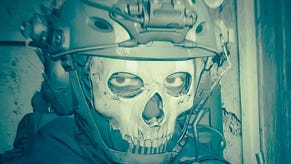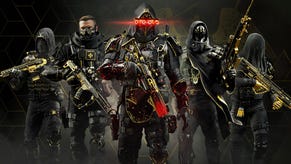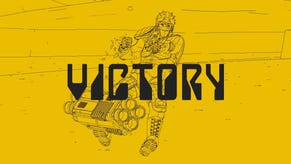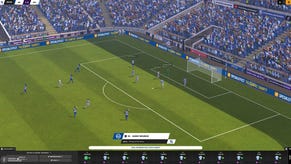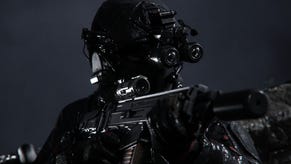Robert Bowling talks Modern Warfare 3
Plus COD Elite, Battlefield 3 and Black Ops.
It may have been nearly two years since the last Modern Warfare game, but Infinity Ward can't seem to get out of the headlines. First there was the infamous sacking of studio heads Jason West and Vince Zampella, then earlier this year Kotaku released a huge stack of leaked campaign materials for Modern Warfare 3, and more recently some wag started redirecting modernwarfare3.com to the website of EA's competing Battlefield 3. It must be something of a relief for Infinity Ward's Robert Bowling that he gets to talk about the game nowadays rather than hijinx.
Not that Bowling is shy. He's a rare thing for a blockbuster game studio - an accessible spokesperson - and through his @fourzerotwo account on Twitter he spends hours every week responding to fan feedback and answering questions. Rather than tweet him though, we caught up with Bowling in London recently to talk about the challenges of multi-studio development, an iffy start for Call of Duty: Elite, and the looming challenge from those noisy folks at Electronic Arts.
I often say that joining Twitter was the best thing I ever did. It's very easy to sit back and look at the sales numbers or how many people are playing or critical response to a game and think, "We're done!" But then you're able to go online every day and hear from people in your community and get a gut check on, "There's still a lot of work to do, there's still a lot of polish we can put into this, this feature didn't work, what can we learn from that?"
I think it's always important to surround yourself with people who have different opinions of you. Regardless of how good your product is, it can always be better, and having that personal engagement allows us to do that.
On the other hand, it also allows us to be aware what the sentiment of the community is immediately. We're not disconnected from our audience – we know exactly what they want and we can be listening to that and seeing how we can use that feedback and incorporate it into the game.
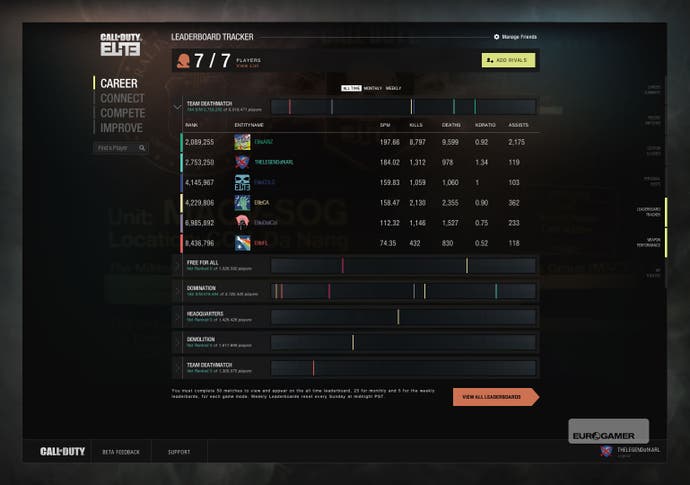
I wouldn't say we're constrained. It's challenging because you have 30 million people who have a wide spectrum of tastes and definitions of what fun is, and that is the challenge of developing a Call of Duty, and it's a unique challenge and not one a lot of developers have – to have such a wide and varied userbase.
I think that's part of the challenge of taking all that feedback and putting it into the filter of, "OK, where does this person come from? Is he a hardcore competitive player? Is he a casual just-for-fun player? Is he Objective-only? Is he somewhere in-between?" And putting it through that filter then putting it through the filter of your core design philosophy of, "We know the game we want to make. How can we incorporate this feedback to enhance that experience we're looking for?"
It's useful because it allows us to spawn new features, new modes, new goals, that maybe we wouldn't have thought of before. Survival Mode in Spec Ops is a direct result of that.
Well, you know, a lot of our core team remained who have been working on the Modern Warfare franchise since its beginning, but it was also great to have a team like Sledgehammer come in with that fresh set of eyes and mentality and the way they did things, and to bounce off each other.
I think it's been great because it's allowed us to take the core game mechanics that make COD what it is - the smooth, super-fast gunplay and controls and big cinematic moments in the story - and then build up in a new way.
A lot of it was looking back and identifying that core gameplay we wanted to do, and in a lot of ways we've been building up from Call of Duty 4 rather than MW2. We're bringing in the stuff we love from MW2 - the advances in tech, the advances in gameplay - but also focusing much more on that gun-on-gun gameplay from COD4 and then building with the new inspirations from everyone on the team.
I would never say anything ever originates entirely from any one group...
Yeah - it was great to have them come in simply from a storytelling standpoint, because these guys, their background is they have great storytelling ability, so to have them come in and work with us on the story and crafting it really allowed us and them to work together to deliver on this payoff. Because this is a big moment in terms of the momentum and characters of this conflict that have been built since Call of Duty 4, so that's been extremely great.
Plus, they have individuals on their team who are amazing at every aspect. They have some amazing world builders. You've seen some of their work in some of the demos you've seen today, and working with our guys and our lighters and artists all together on the same levels has been fantastic.



